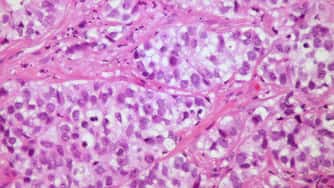What is an Oncologist?
Fight the good fight against cancer.

Regardless of whether a tumor is malignant or benign, cancer is scary. There is no way to understate the plague of this potentially fatal disease. As science progresses, hopefully we will one day find a cure. Or at least a foolproof way for anyone to survive a cancer diagnosis.
Until that day occurs, we rely on the information learned from the study of oncology to treat cancer. As you may have guessed, those working in this healthcare field are called oncologists. What you may not know, however, is there are quite a few oncology options medical students can choose when entering the field.
Let’s go over what oncologists are and the subcategories they can enter into.
Oncology Overview
To become an oncologist, you’ll first need a Bachelor’s degree. Once attained, students can apply to a 4-year med school. This includes 2 years in the classroom and 2 years in a clinic or similar setting.
This next stretch of the journey will give you real, hands-on, paid-training. Afterward, students hoping to specialize in oncology will need to complete a fellowship. Once the 1-to-3 year fellowship is completed, medical students can take the medical licensing exam of their respective state.
Making it to the level of licensure gives doctors the option to work in a hospital or start their own private practice. Regardless of which one is chosen, an oncologist’s day typically goes as follows.
Start each workday between 7 and 9 in the morning. First initial hour or two is spent in the office, reviewing the day's schedule. Once all the office work is squared away, oncologists can begin their rounds. Duties include the following:
- Determining cancer type and its stage
- Identifying the best treatment options
- Providing great bedside manner
- Helping patients manage side effects of treatment and cancer symptoms
- Speaking with families
- Checking vital signs and patient well-being
From there, oncologists may take on new patients depending on how many they currently have.
Types of Oncologists
Now that we’re familiar with what oncologists do, how to become one, and their average day, let’s review the different specialties available.
- Medical: treats cancer using chemotherapy or medication such as immunotherapy, boosting the body's immune system, or targeted therapy, which typically does less damage than chemo.
- Surgical: conducts biopsies, removes tumors and potentially affected tissue nearby
- Radiation: uses radiation therapy to kill cancer cells and shrink tumors
- Gynecologic: provides care for patients with specific cancers, such as ovarian and cervical
- Pediatric: cares for children with cancer
- Hema: treats blood cancers, such as myeloma and leukemia
Those seeking to earn more money or oncologists that prefer a specialty can become a specialists via additional education and training.

